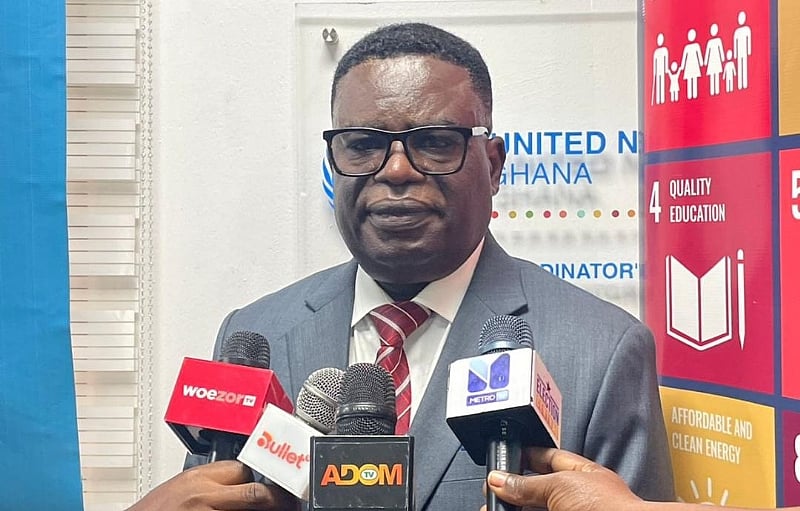The United Nations is calling on governments across the globe, including Ghana, to take bold and coordinated steps to fast-track a fair shift from fossil fuels to clean, affordable energy.
Speaking at a press briefing in Accra on Wednesday, July 23, Dr Emmanuel Kofi Mbiah, the Country Lead for Ocean Centres Ghana, highlighted key points from a new UN report on the global clean energy transition.
He emphasised that even though the world is already moving away from fossil fuels, more needs to be done, especially by governments, to speed up progress and make sure no one is left behind.
“The report advises countries such as ours to provide policy coherence, clarity and certainty. Governments should align policies, incentives and resources to accelerate the just energy transition,” he said.
The report, titled “Seizing the Moment of Opportunity”, outlines six priority actions, including investing in modern energy infrastructure, powering growing industries like artificial intelligence with renewables, and making fairness and people central to climate action.
It noted that if these steps are not taken, the transition will remain too slow and unequal.
It also revealed that clean energy is already gaining ground globally as in 2024 alone, more than $2 trillion was invested into clean energy, which is almost double what was spent on fossil fuels.
Wind and solar are now the cheapest ways to generate electricity in many parts of the world, and clean energy jobs now outnumber fossil fuel jobs globally, says the report.
However, the report noted that Africa’s share of this new energy boom remains minimal 1.5% of global renewable capacity despite having some of the best solar resources in the world.
The UN’s findings show that part of the problem lies in how governments are handling energy policy.
It revealed that some, including Ghana, are sending mixed signals, announcing climate goals on one hand while continuing to subsidise fossil fuels on the other.
This lack of direction, the report says, makes it harder to attract the money and technology needed to grow a strong, green energy sector.
The full report was prepared by the UN Secretary-General’s Climate Action Team with contributions from institutions like the International Energy Agency, IRENA, the World Bank and the IMF.


